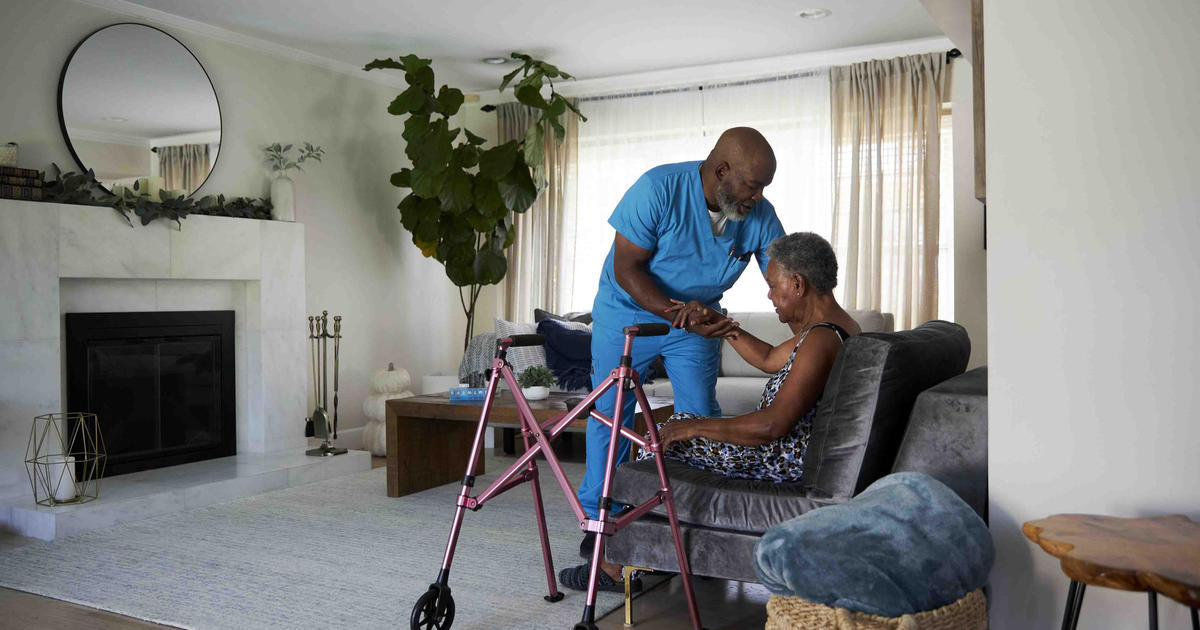A retirement planning must-do for married couples
If you're part of a married couple, it's highly likely that one of you will become a widow or widower at some point. And you'll have lots of company: The U.S. now has 20 million widows and widowers, with 1.4 million added each year, according to an insightful study by Merrill Lynch and Age Wave titled "Widowhood: The Loss Couples Rarely Plan for -- and Should."
Women are more than three times as likely as men to lose their spouse, according to this study, given that women tend to outlive men, and men tend to marry younger women.
Yet there's a big disconnect between both members of a married couple regarding this risk. More than half (53 percent) of all people who've lost a spouse said they didn't have a plan if one of them passed away. And more than three-fourths (76 percent) of married retirees said they wouldn't be financially prepared for retirement if their spouse passed away.
Losing a spouse is the hardest thing for married people
If you need some motivation to take action, consider this: More than three-fourths of people who've lost a spouse said it's the single hardest thing they've ever been through. In addition, half of all such people experience a household decline in income of 50 percent or more, and two-thirds said adjusting to this income loss is their top financial concern. Almost two-thirds of those who've lost a spouse said at the beginning of their grief, they were overwhelmed with an onslaught of paperwork and didn't know where to start.
What can you do to reduce the risk and worry that comes with losing a spouse? "Married couples can 'show each other the love' by planning for this inevitability," said Surya Kolluri, a managing director in the Retirement and Personal Wealth Solutions group at Bank of America Merrill Lynch.
The Merrill Lynch/Age Wave study found that only 36 percent of people who lost a spouse but planned for such an event worried that they wouldn't be able to support themselves immediately afterward, compared to 64 percent in this group who hadn't planned at all.
Surviving spouses share their advice
What advice do people who've lost their spouse have for the newly widowed?
- Avoid making major decisions immediately.
- Locate important documents, and continue to pay bills on time.
- Notify employers, banks and other financial institutions.
- Reevaluate your retirement strategy.
- Update your beneficiaries and estate plans.
What advice do recent widows and widowers have for couples?
- Know how to access your spouse's accounts, and have both names on all accounts and deeds.
- Be able to access cash easily.
- Keep your credit card debt separate.
More smart moves
Married couples who are transitioning from the workforce into retirement can make smart decisions that will protect the surviving spouse in the years to come. Here are some critical steps discussed in my recent book, "Retirement Game-Changers: Strategies for a Healthy, Financially Secure, and Fulfilling Long Life."
- Claim Social Security benefits so that they have the potential to increase the surviving spouse's payment.
- If you have a pension or buy an annuity from an insurance company, elect a joint and survivor annuity that continues to pay income after one spouse has passed away.
- Have a strategy to address the costs of long-term care. An unfortunate, common scenario is when the husband needs care and the resulting high costs exhaust the couple's financial resources, leaving the wife poor and emotionally drained when he passes away.
- Nurture relationships with family who can provide emotional and logistical support to the surviving spouse.
Despite the sad prospect of losing your spouse, Kolluri offers hope for the newly widowed: "Even though losing a spouse creates tremendous pain and difficulty, more than three-fourths of people said that after losing a spouse, they discovered courage they never knew they had. And almost three-fourths say that today, they consider themselves more financially savvy than other people their age."
Married couples can learn from this hard-earned experience. Find the courage to take steps now to protect your spouse, while both of you are still alive. Then when the inevitable happens, the surviving spouse can focus on healing the emotional disruption without the added stress of worrying about money. Planning together is a great way to say "I love you."




